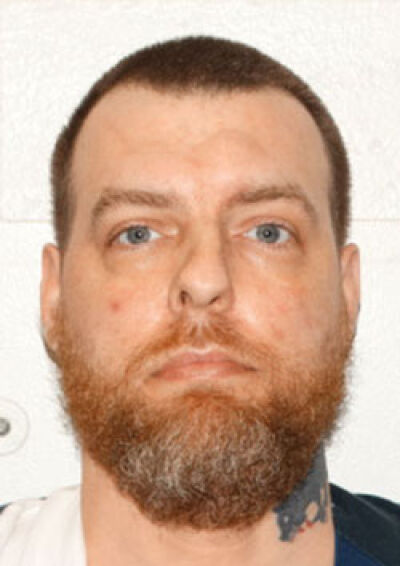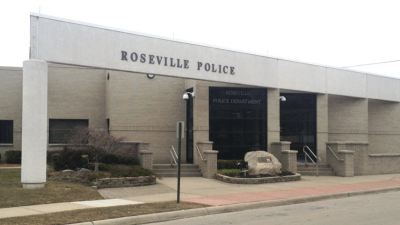MACOMB COUNTY — A Macomb County Circuit Court judge earlier this month granted a request for a stay of further proceedings in a criminal sexual assault case.
On Sept. 7, Circuit Court Judge Joseph Toia granted the Macomb County Prosecutor’s Office’s request for a stay of further proceedings in the case of Anthony Veach, who was convicted of multiple counts of criminal sexual conduct in 2017, but whose appeal to the Michigan Supreme Court has resulted in a new trial.
At press time, Veach remained in custody on his original bonds.
The case so far
Veach was convicted of seven counts of first-degree criminal sexual conduct and two counts of second-degree criminal sexual conduct in three different cases that were consolidated into one jury trial. He was accused of sexually assaulting his daughter when she was 15 and 16 years old.
Dawn Fraylick, communications director for the Macomb County Prosecutor’s Office, said in an email that the crimes took place at Veach’s home in Macomb County between March 2015 and July 2016. According to court documents, Veach lived in three different municipalities where he is alleged to have committed the crimes.
He was sentenced to 20 to 60 years in prison for each of the first-degree criminal sexual conduct charges and 10 to 15 years for each of the second-degree charges. Each sentence was to be served concurrently.
According to a press release from the Macomb County Prosecutor’s Office, Veach appealed the convictions due to the trial judge, Toia, closing the courtroom during the daughter’s testimony without putting the specific reasons for the closure on the court record. The Michigan Court of Appeals found that there were valid reasons on the record to close the courtroom.
At three previous preliminary examinations at the district court level, the courtrooms had been closed during the daughter’s testimony, according to the review of the case in the Michigan Supreme Court’s order.
On July 28, the Michigan Supreme Court’s order reversed the Court of Appeals’ decision, finding that the trial court violated the U.S. Constitution’s Sixth Amendment by not placing the reasons for closing the courtroom on the record. This decision vacated Veach’s convictions and gave him a new trial.
“Since the trial court did not consider any alternatives to closure during the complainant’s testimony, defendant’s public-trial right was violated and we reverse and remand for a new trial,” the Michigan Supreme Court’s order reads in part.
“The mere fact of closure during preliminary examination is insufficient to support closure at trial,” the order reads.
The entire order, which includes Michigan Supreme Court Justice Brian Zahra’s dissent, is 37 pages in length.
Zahra “vigorously dissented and would have ruled the record clearly established the basis to close the courtroom during the child victim’s testimony,” the press release from the Prosecutor’s Office states.
“Although one can hope that the victim has the strength and willingness to go through another trial, there is a very real possibility that now, seven years after the events at issue occurred, the victim will not want to recount on a courtroom witness stand, yet again, the abuse that she suffered, forcing her to relive the trauma,” Zahra said in his dissent.
Prosecutor’s Office files appeal
The Macomb County Prosecutor’s Office is filing to appeal the Michigan Supreme Court’s decision with the U.S. Supreme Court.
“Does the Sixth Amendment right to a public trial require subjecting the child rape victim to an automatic retrial based on a technicality when there are ample and (obvious) reasons in the court record justifying the closure of the courtroom during the child victim’s testimony, even if the trial court does not expressly state those reasons on the record?” the press release states.
In the press release, Macomb County Prosecutor Peter Lucido explained his office’s goals.
“We are determined to do everything within our power to shield the sexual assault victim from further trauma and ensure that justice is served,” Lucido said in a statement.
A brief prepared by Lucido’s office is due to the U.S. Supreme Court at the end of October. Once received, the defense will respond with its own brief. Once both have been submitted, the Supreme Court will decide whether or not it will hear the case.
If the court decides not to hear the case, a retrial will be necessary, according to the press release.
Steven Helton, Veach’s appellate attorney, said the Michigan Supreme Court’s decision recognized that a public trial is a prerequisite to a fair trial.
“The founders also recognized this fact, which is why the Michigan Constitution and the United States Constitution both explicitly guarantee all people the right to a public trial,” he said in an email. “If the prosecution does file an appeal in this case, the State Appellate Defender Office will continue to represent Mr. Veach and to defend the Constitution.”
Helton works for the State Appellate Defender Office.
Joan Ellerbusch Morgan, who is listed as Veach’s current trial attorney, did not return a request for comment.
 Publication select ▼
Publication select ▼



























